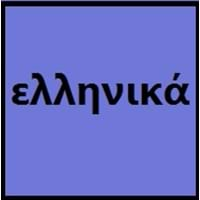Greek vs Galician
- Greek is the longest documented language of all the Indo-European Langauges.
- The official language of education in the Roman Empire was Greek.
- In Galician language, there are no compound tenses.
- The earliest document in Galician language was written in 1228 which was legal charter for a municipality of Galicia.
Greek and Galician Language History
Comparison of Greek vs Galician language history gives us differences between origin of Greek and Galician language. History of Greek language states that this language originated in 1500 BC whereas history of Galician language states that this language originated in c. 1175. Family of the language also forms a part of history of that language. More on language families of these languages can be found out on Greek and Galician Language History.
Greek and Galician Greetings
People around the world use different languages to interact with each other. Even if we cannot communicate fluently in any language, it will always be beneficial to know about some of the common greetings or phrases from that language. This is where Greek and Galician greetings helps you to understand basic phrases in Greek and Galician language. Greek word for "Hello" is γεια σας (geia sas) or Galician word for "Thank You" is Grazas. Find more of such common Greek Greetings and Galician Greetings. These greetings will help you to be more confident when conversing with natives that speak these languages.
Greek vs Galician Difficulty
The Greek vs Galician difficulty level basically depends on the number of Greek Alphabets and Galician Alphabets. Also the number of vowels and consonants in the language plays an important role in deciding the difficulty level of that language. The important points to be considered when we compare Greek and Galician are the origin, speaking countries, language family, different greetings, speaking population of these languages. Want to know in Greek and Galician, which language is harder to learn? Time required to learn Greek is 44 weeks while to learn Galician time required is Not Available.





